Filter by
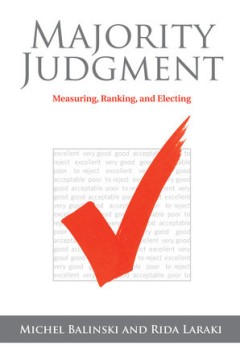
Majority judgment: Measuring, ranking, and electing
This title provides an account of a new theory and method of voting, judging and ranking, 'majority judgement', shown to be superior to all other known methods.OCLC-licensed vendor bibliographic record.
- Edition
- -
- ISBN/ISSN
- 9780262295604
- Collation
- 1 online resource (xv, 414 pages) :illustrations
- Series Title
- -
- Call Number
- -

Models of bounded rationality.
Available through MITCogNet.Offering alternative models based on such concepts as satisficing (acceptance of viable choices that may not be the undiscoverable optimum) and bounded rationality (the limited extent to which rational calculation can direct human behavior), Simon shows concretely why more empirical research based on experiments and direct observation, rather than just statistical an…
- Edition
- -
- ISBN/ISSN
- 9780262283649
- Collation
- 1 online resource :illustrations
- Series Title
- -
- Call Number
- -

Public Finance and Public Choice :Two Contrasting Visions of the State.
In this volume, based on a week-long symposium at the University of Munich's Center for Economic Studies, two leading scholars of governmental economics debate their divergent perspectives on the role of government and its fiscal functions. James M. Buchanan, who was influential in developing the research program in public choice, concentrates on the imperfections of the political process and s…
- Edition
- -
- ISBN/ISSN
- 9780262269476
- Collation
- 1 online resource (282 pages)
- Series Title
- -
- Call Number
- -
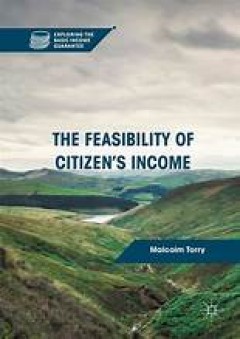
The Feasibility of Citizen's Income
This book is the first full-length treatment of the desirability and feasibility of implementing a citizen’s income (also known as a basic income). It tests for two different kinds of financial feasibility as well as for psychological, behavioral, administrative, and political viability, and then assesses how a citizen’s income might find its way through the policy process from proposal to …
- Edition
- 1
- ISBN/ISSN
- 978-1-137-53078-3
- Collation
- XXIX, 286, 11 b/w illustrations, 2 illustrations in colour
- Series Title
- Exploring the Basic Income Guarantee
- Call Number
- -
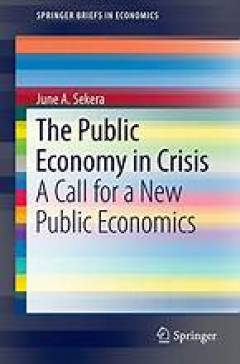
The Public Economy in Crisis
This Brief proposes a new theory of public economics which deemphasizes reliance on the free market and affirms the importance of public goods and services within the context of the democratic process and constitutional governance. Public non-market production makes up from a quarter to more than half of all economic activity in advanced democratic nation-states. Yet by imposing market precepts…
- Edition
- 1
- ISBN/ISSN
- 978-3-319-40487-5
- Collation
- XV, 128, 3 b/w illustrations, 4 illustrations in colour
- Series Title
- SpringerBriefs in Economics
- Call Number
- -
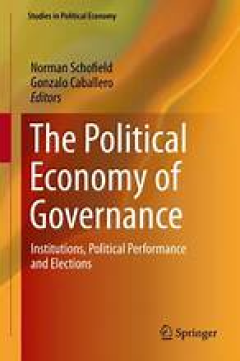
The Political Economy of Governance
Understanding the governance of nations is a key challenge in contemporaneous political economy. This book provides new advances and the latest research in the field of political economy, dealing with the study of institutions, governance, democracy and elections. The volume focuses on issues such as the role of institutions and political governance in society, the working of democracy and the …
- Edition
- 1
- ISBN/ISSN
- 978-3-319-15551-7
- Collation
- XXIV, 393, 61 b/w illustrations
- Series Title
- Studies in Political Economy
- Call Number
- -
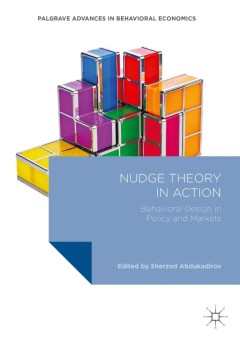
Nudge Theory in Action: Behavioral Design in Policy and Markets
This collection challenges the popular but abstract concept of nudging, demonstrating the real-world application of behavioral economics in policy-making and technology. Groundbreaking and practical, it considers the existing political incentives and regulatory institutions that shape the environment in which behavioral policy-making occurs, as well as alternatives to government nudges already …
- Edition
- 1
- ISBN/ISSN
- 978-3-319-31318-4
- Collation
- XIX, 351
- Series Title
- Palgrave Advances in Behavioral Economics
- Call Number
- -

Value Economics The Ethical Implications of Value for New Economic Thinking
The last financial crisis revealed a gap between business practice and ethics. In Value Economics, Griffiths and Lucas examine some of the reasons for this ethical gap and discuss the resulting loss of confidence in the financial system. One of the reasons has been hazy or inadequate thinking about how we value economic enterprises. With the close link between the creation of value and business…
- Edition
- -
- ISBN/ISSN
- 978-1-137-54187-1
- Collation
- XV, 281
- Series Title
- -
- Call Number
- -
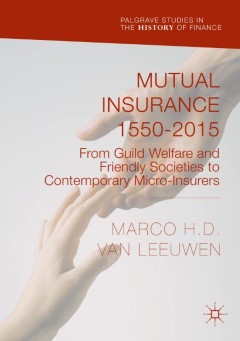
Mutual Insurance 1550-2015
In the modern Western world, we tend to be insured by the state or for-profit insurers. We have privileged this system over mutual or micro-insurance, whose long and rich history we tend to forget. Yet, mutual and micro-insurance is becoming increasingly important, both in the Western and in the non-Western world and bears re-examination. This book traces the track record of mutual insurance…
- Edition
- 1
- ISBN/ISSN
- 978-1-137-53109-4
- Collation
- XIII, 321
- Series Title
- Palgrave Studies in the History of Finance
- Call Number
- -
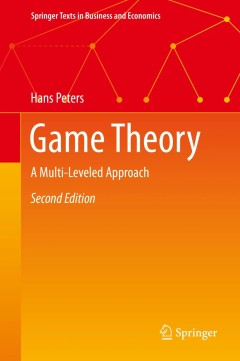
Game Theory
“It can be used at an advanced undergraduate course or a graduate course. … I found the book very well written and appropriate for a game theory course focused on business and economics students and applications. Some of the problems are very challenging but most of them are at the appropriate level and the reader will have some fun and learn from them. This is a book that I recommend if yo…
- Edition
- -
- ISBN/ISSN
- 978-3-662-46949-1
- Collation
- -
- Series Title
- -
- Call Number
- 300
 Computer Science, Information & General Works
Computer Science, Information & General Works  Philosophy & Psychology
Philosophy & Psychology  Religion
Religion  Social Sciences
Social Sciences  Language
Language  Pure Science
Pure Science  Applied Sciences
Applied Sciences  Art & Recreation
Art & Recreation  Literature
Literature  History & Geography
History & Geography